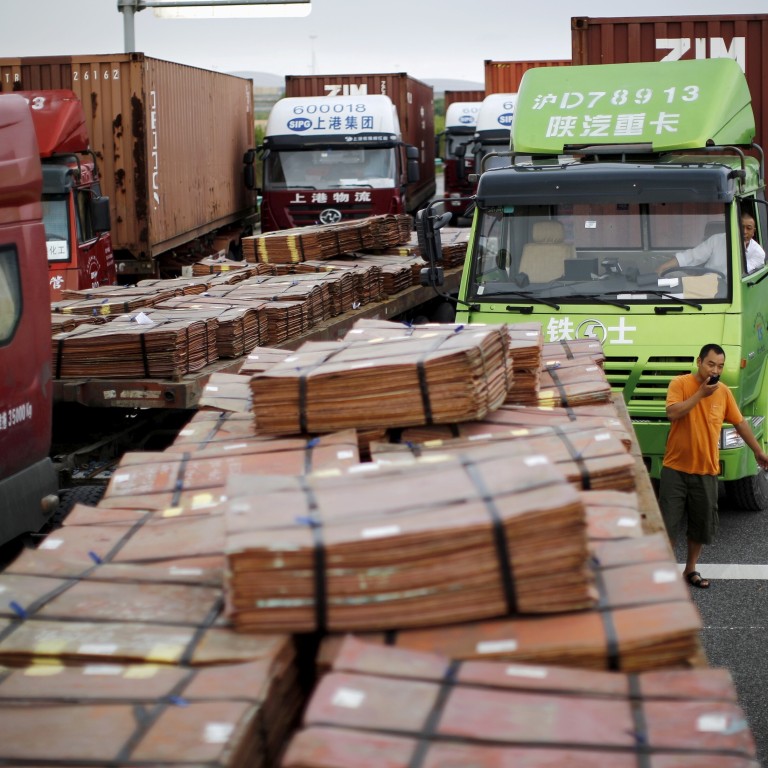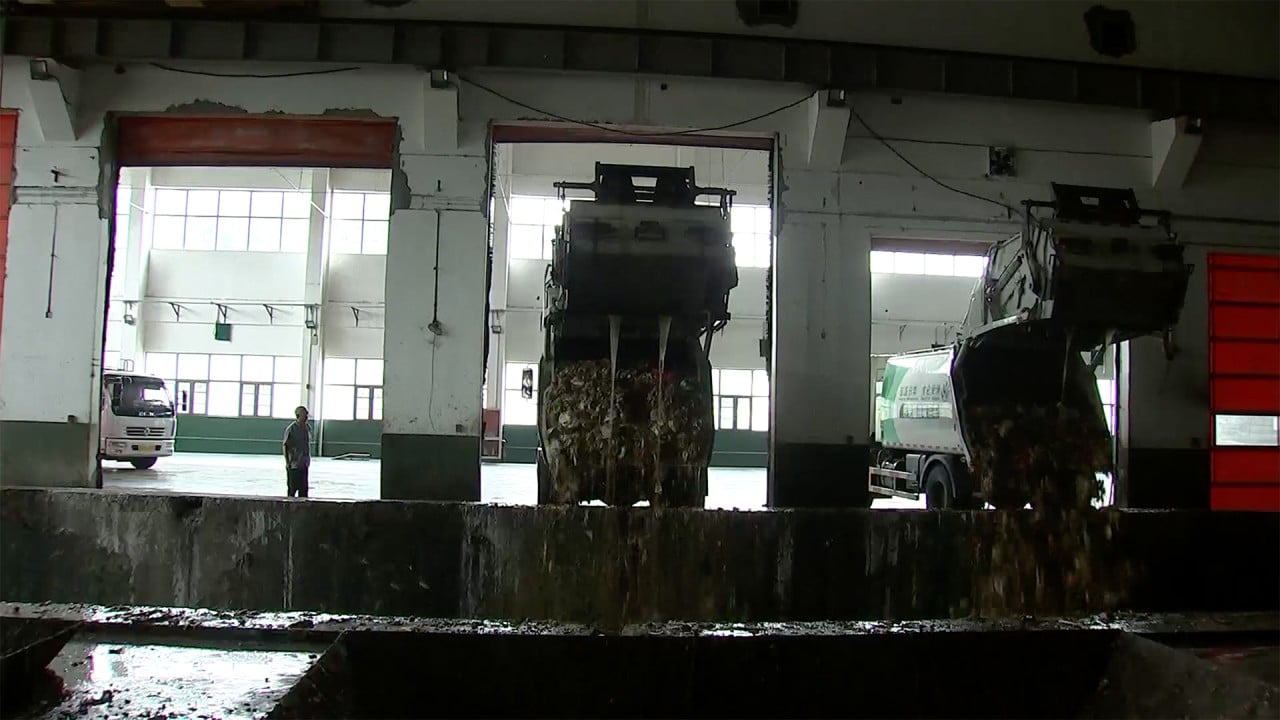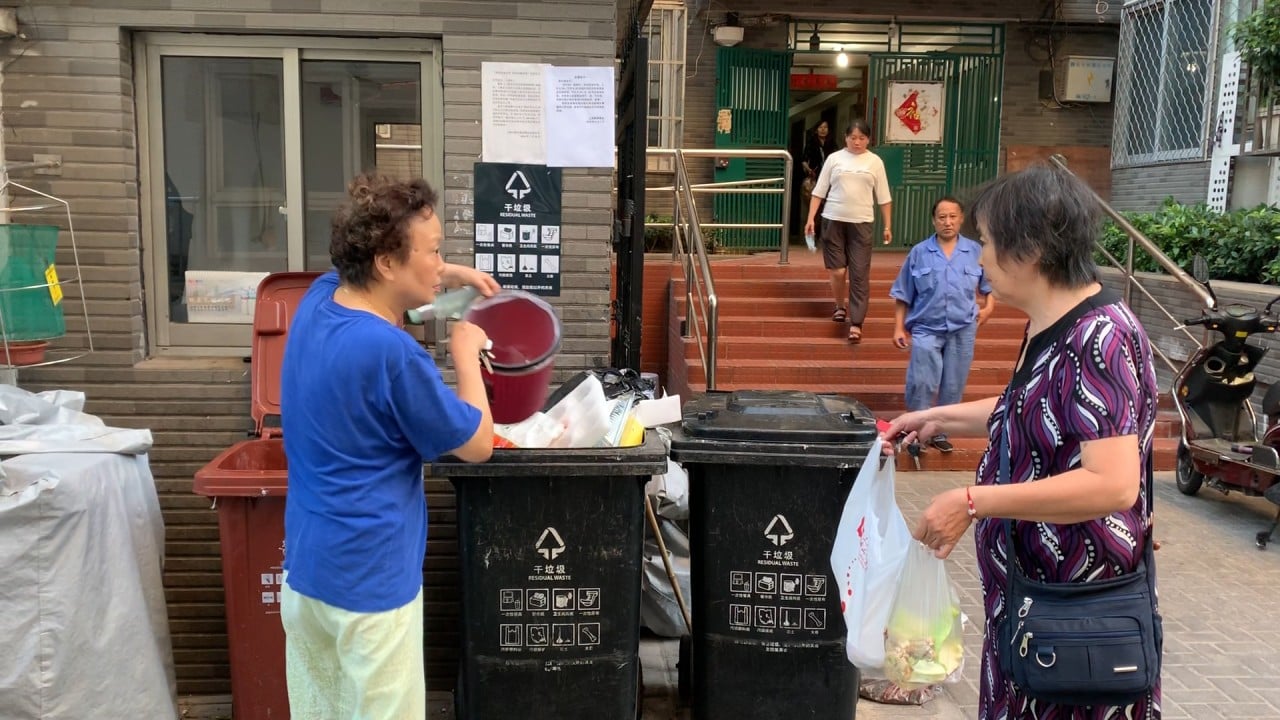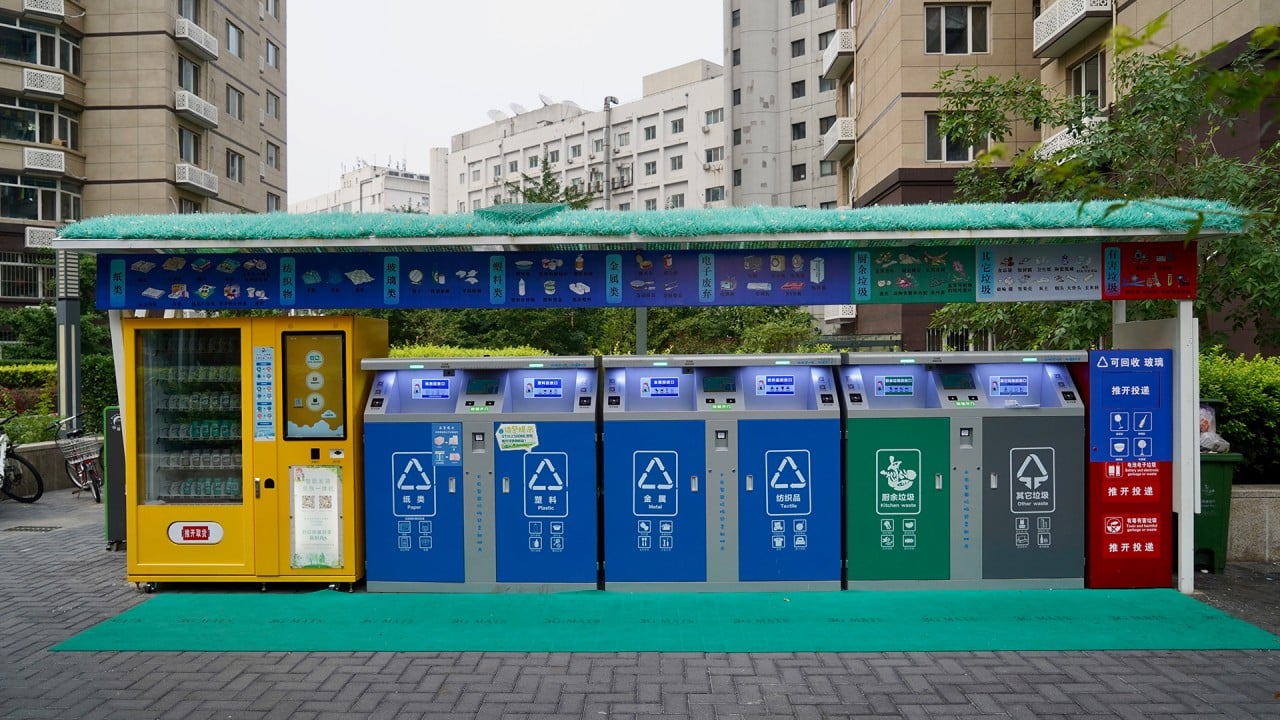
China lifts import ban on scrap metals as coronavirus recovery heaps pressure on domestic metal supply
- China has relaxed import restrictions on high-grade copper, aluminium and brass scrap, allowing them be freely imported from November 1
- The move indicates China is ready to allow more recycling to ease a shortage in metals caused by strong demand due to its economic recovery
China has lifted its import ban on some high-quality scrap metals after several years of restrictions, indicating a move towards more recycling to meet a shortage of raw materials caused by the country’s strong economic recovery.
The increase in metal scrap imports will relieve pressure on domestic supplies and cut raw material prices that have been driven up by domestic demand. It will also help reduce emissions caused by mining.
On Monday, the Ministry of Ecology and Environment relaxed import restrictions on high-grade copper, aluminium and brass scrap, allowing these products to be freely imported from November 1. The special announcement removes their classification as solid waste.

01:23
China develops technology to recycle kitchen waste into energy sources
“In theory, the implementation of the new standard will remove the restrictions on scrap imports and ease the shortage in the domestic market. Moreover, China’s copper scrap market will [now] be determined by supply and demand, rather than policy factors,” a recycling source from the eastern province of Zhejiang told metal analyst Mysteel Global, referring to the import quota system.
This mirrors an announcement from the China Solid Waste & Chemicals Management Centre (CSWCM) in July that it was considering loosening its quota on imports of scrap metal as the Chinese market was running short of brass, copper and aluminium alloy scrap amid surging industrial activity after pandemic lockdowns were lifted, S&P Global Platts said in a recent note.
While there has been a ban on imports of scrap metals since 2017, not all metal scrap imports have been curbed. Instead, the state-backed CSWCM administers an import quota system that drip feeds the domestic market.
The quota system and the lift in the ban on copper scrap will be particularly helpful in calibrating the copper market, especially as prices have risen rapidly due to high demand.

03:07
How is China’s recycling campaign changing the way Shanghai people live?
The copper contract traded on the London Metal Exchange, the global benchmark, closed at 6,978 per tonne on Wednesday, the highest level since mid-2018, having risen 40 per cent in the last six months.
The shortage of scrap copper is one of the reasons China has been on a refined copper buying spree, according to a report by commodity consultancy Roskill in August. A loosening of the scrap copper import limit could relieve price pressures and slow down refined copper imports.
“Roskill believes this 300 kilotonnes deficit in secondary supplies is one of the main factors explaining the 675 kilotonnes surge in Chinese refined imports to 2.6 million tonnes between January and July 2020,” Roskill associate consultant Jonathan Barnes said in the report.
China imported 3.55 million tonnes of refined copper in the first nine months of this year, exceeding the total for all of last year, Reuters reported on Thursday.

03:04
Garbage bins with facial recognition cameras put into use in Beijing
The International Copper Study Group, an intergovernmental group of copper producing and consuming nations to which China belongs, expected copper supply to fall short of demand this year, according to a forecast released this week.
But it added not all Chinese copper purchases have been used for production, pointing to the possibility that some inventory is being hoarded, as analysts are sceptical China’s real consumption of the metal has risen so quickly.
JP Morgan metals analyst Natasha Kaneva said at a virtual London Metal Exchange seminar this week the numbers hinted that “some invisible [speculative] stocks have been accumulated”.
Mysteel Global senior analyst Li Hongmei said how much of the secondary supply of copper, including scrap, Chinese smelters will be willing to process remains to be seen.
The Chinese smelters will pick up the raw materials that make the most economic sense, sometimes they may just import aluminium and copper instead of smelting themselves if it is cheaper to do so
“The Chinese smelters will pick up the raw materials that make the most economic sense, sometimes they may just import aluminium and copper instead of smelting themselves if it is cheaper to do so,” she said.
The relaxing of import limits on scrap copper, brass and aluminium could also pave the way for an easing on scrap steel imports.
The China Association of Metalscrap Utilisation is already lobbying Beijing to open up steel scrap import channels, particularly given the surge in iron ore prices due to China’s manufacturing recovery.

